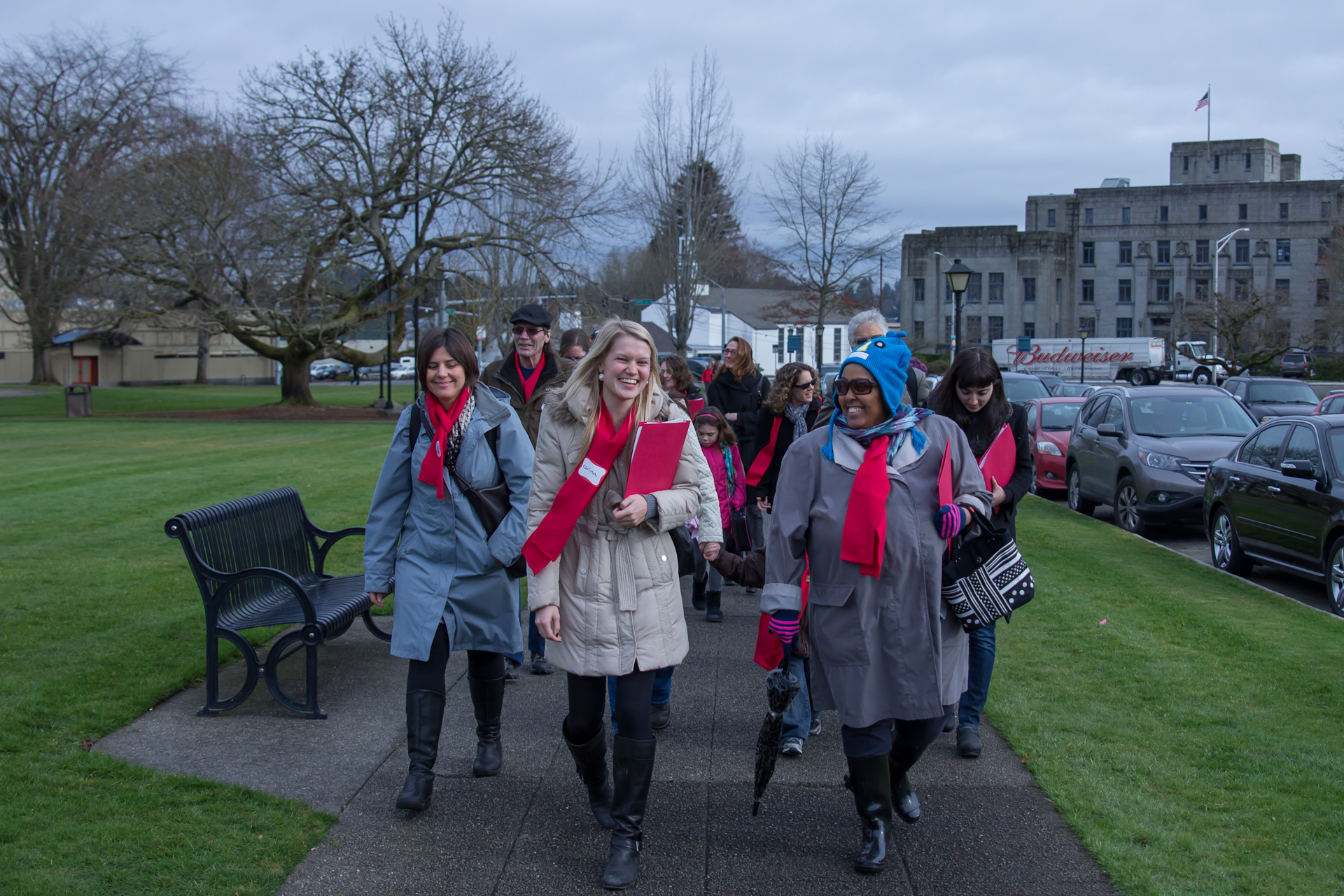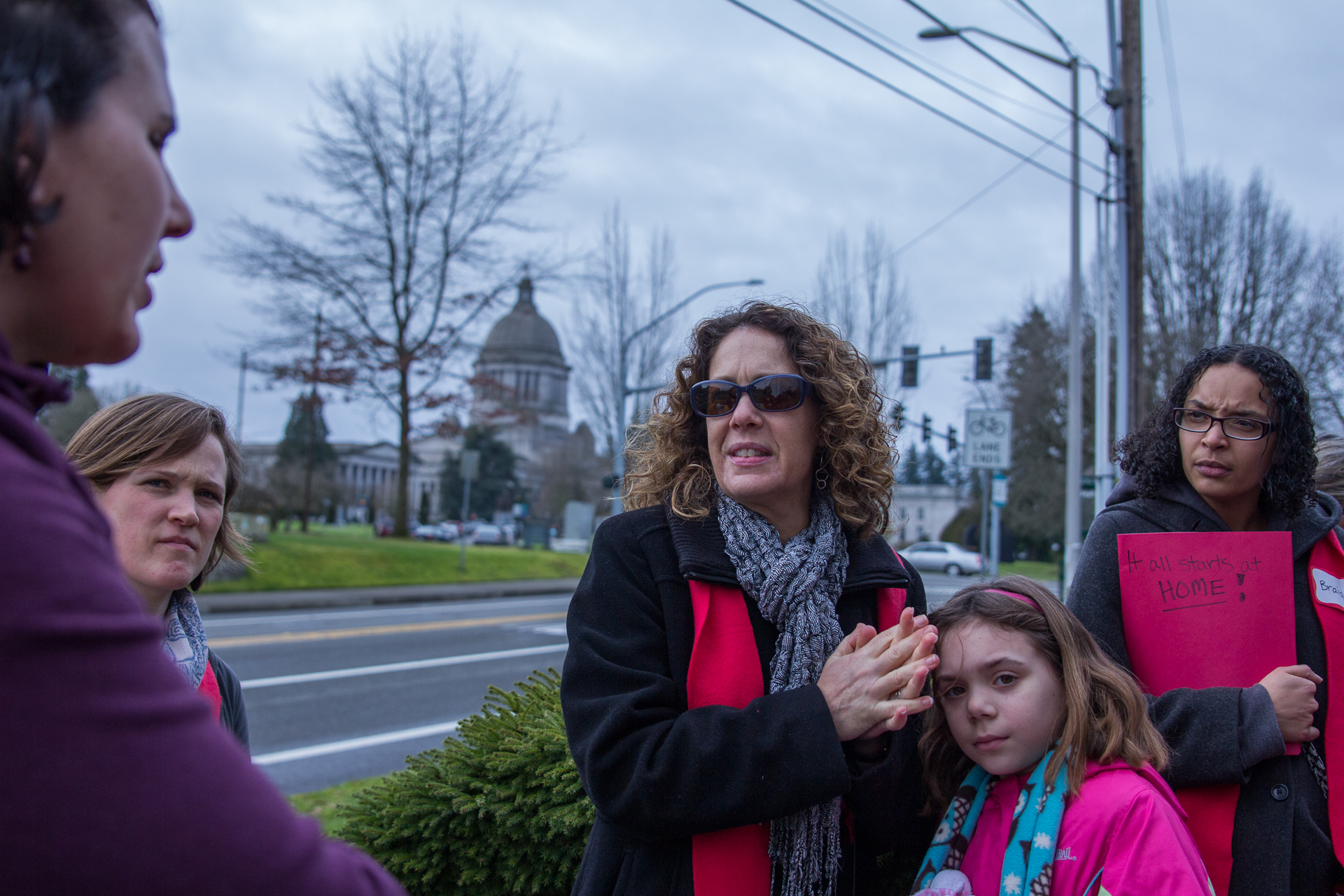Recent Blog Posts
Housing Alliance Policy & Advocacy Team
You can read our housing and homelessness analysis of the governor's budget here: 2015 Budget 1.0 - Our Analysis.
At around 11:30am today, the Washington State House of Representatives released their operating and capital budgets for the 2015-2017 biennium. You can read both budgets in their entirety at this page. While there are some things that can be strengthened, we applaud the House for including new revenue and making significant investments in affordable homes and services that help people meet their basic needs.
Check out our bill tracker here for how the House budget compares to the Governor’s budget.
I. Capital Budget
 Overall the capital budget contains $110,200,000 for affordable housing with $80 million specifically for the Housing Trust Fund. Here is the specific breakdown:
Overall the capital budget contains $110,200,000 for affordable housing with $80 million specifically for the Housing Trust Fund. Here is the specific breakdown:
$80 million for the Housing Trust Fund
The budget emphasizes the Department of Commerce’s role in awarding “loans and grants on a competitive basis to affordable housing projects statewide.” It outlines a minimum number of homes and beds to be created for seniors, families with children, people with disabilities, veterans, homeless youth, and farmworkers. It also provides significant flexibility to fund other low-income housing if the state lacks suitable projects in those categories.
$20 million for Energy Matchmakers
This funding would help enable low-income households to make weatherization improvements to save homeowners money and decrease home energy consumption.
$5 million for HTF Portfolio Preservation
Money in this category is marked for renovation and upkeep needs (aka “capital needs”) for homes that have received previous HTF funding.
$5 million for ultra energy-efficient affordable housing demonstration
These funds would be used to pilot innovative energy-efficient designs for single- and multi-family affordable housing.
$200,000 for Spokane Fairchild purchase of land for affordable housing development
This small allocation is to help purchase land for affordable housing related to the relocation of low-income households from the Fairchild Air Force Base flight path.
II. Operating Budget

Housing & Essential Needs/Aged, Blind & Disabled/SSI Facilitation Services
These services provide a lifeline of support for very low-income single adults with disabilities so they can keep their home and thrive. It appears that funding for HEN may have been preserved at current levels. It is confirmed that funding for ABD and SSI Facilitation Services are fully preserved.
$3 million for Washington Youth and Families Fund
This fund provides stable, long-term funding for both on- and off-site supportive services linked to affordable housing for young people and families. While we recommended investing $6 million for the fund, the House ended up matching the Governor’s allocation of $3 million.
TANF (Temporary Assistance for Needy Families)
This program is a critical lifeline for vulnerable families across Washington. We support our partners’ goals of restoring the 15% cut to the TANF cash grant and implementing other improvements to make TANF work better for Washington’s families. The House matched the Governor’s budget in that it neither restored nor significantly cut the TANF grant.
Medicaid Permanent Supportive Housing Services
We were surprised and disappointed to learn that this received no funding. But, we still have an opportunity to make sure this is included in the final budget. This would allow more chronically homeless people to access housing and services and help individuals with severe and chronic health issues stay off the street and live in a healthy home. Stay tuned, as we’re sure to have more developments next week. More about this benefit at our state advocacy page.
III. New Revenue

The House budget hearings will take on Monday, March 30. The capital budget hearing is at 8:00am and the operating budget hearing is at 1:30pm.
If you are interested in testifying at a public hearing, please email Michele Thomas.
And stay tuned, as we’ll also have an action alert that will allow you to quickly and easily email your elected official both thanking them and letting them know how they can improve the budget.


Add new comment